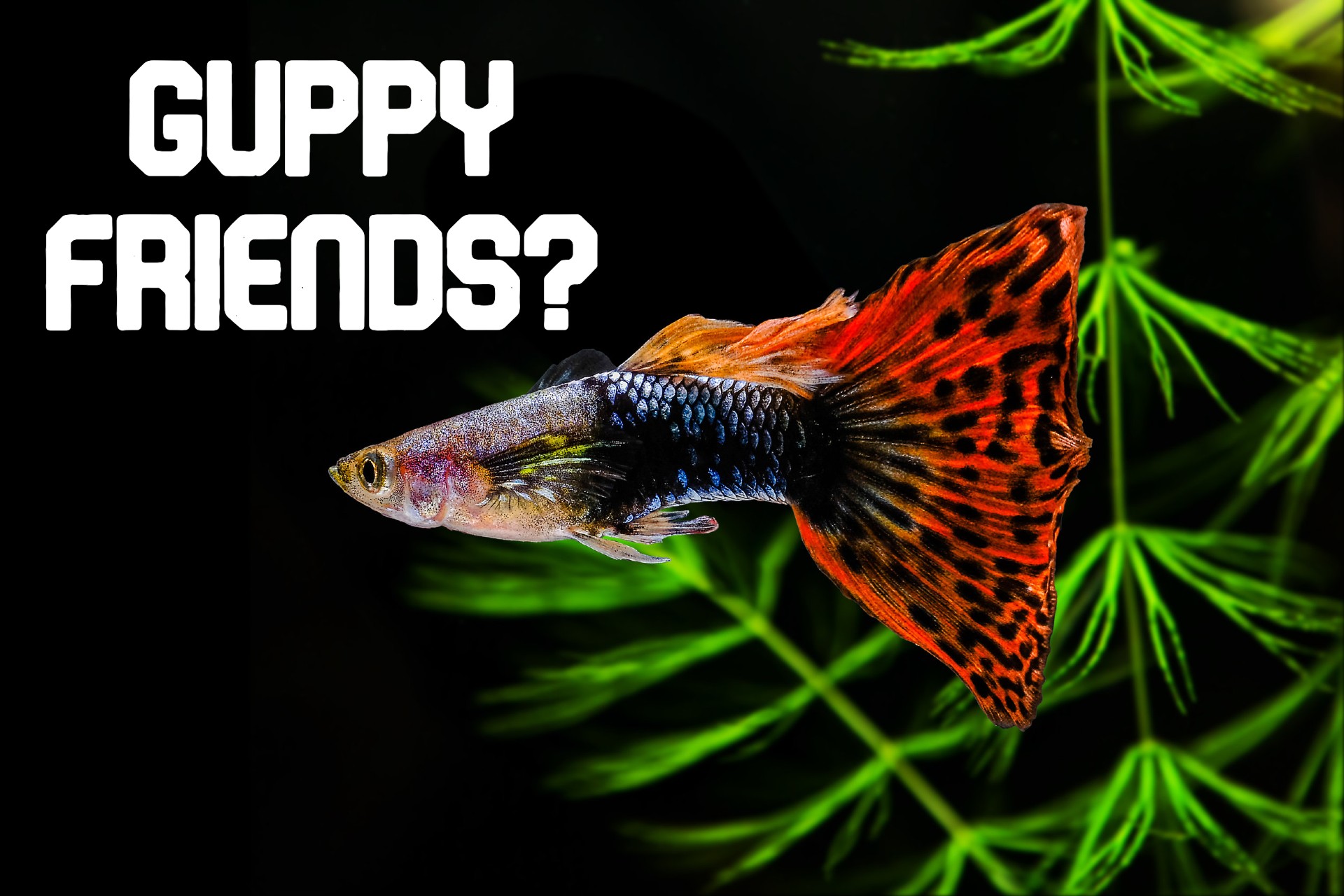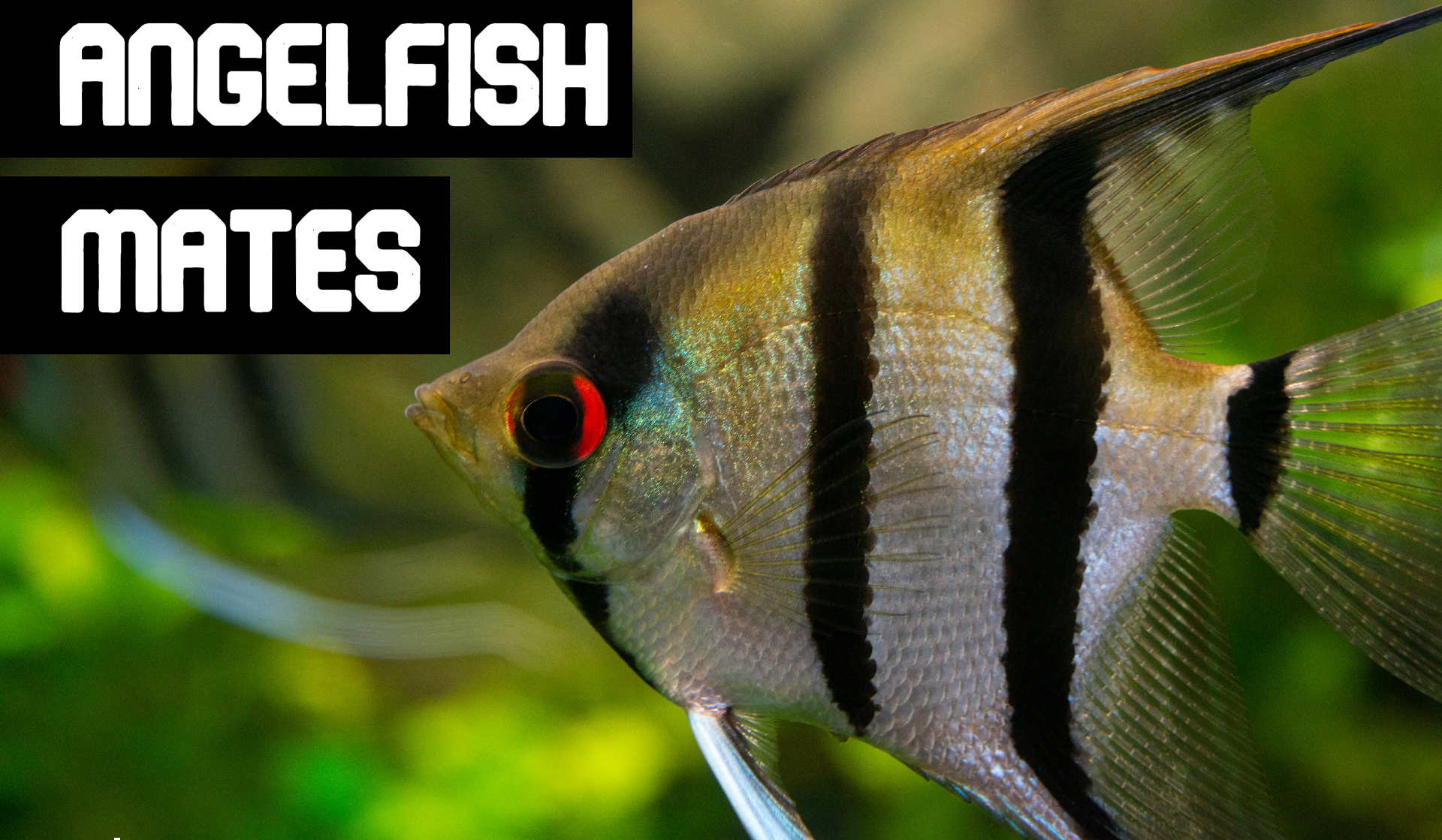Every fish enthusiast who has spent time watching their fish will tell you that fish have different personalities. Some fish prefer dark hiding places and solitude, while others love being in the center of attention with a school of companions. Many of these quirks are what make fish keeping so rewarding and special. It can be easy to chalk a lot of these behaviors up to instinct and evolution, but it still begs the question: Do fish have personalities?
The answer is yes, fish do have individual personalities. Recent studies have shown that fish from the same species can have an entire spectrum of personality traits that impact the way they interact with each other and their surroundings.
In one study, Trinidadian guppies were tested for their response to stressors in the environment. Researchers expected the results to match up with a standard spectrum of behavior, but the results were much more complex than they originally anticipated. Each individual fish responded differently to stressors in their environment. Some fish were more courageous while others were timid. However, the real surprise came when the environment stressor was changed. The fish not only displayed different responses from one another, but the individual behaviors stayed relatively the same between the different tests- the courageous fish were more likely to continue to be brave, and the timid fish continued to hide. This repeated behavior has led researchers to believe that the guppies were all displaying distinct personality traits.
Biologists studying pumpkinseed sunfish have also observed a similar pattern between cautious and courageous fish. Fish who were curious enough to enter a minnow trap was more likely to do so again later on. The timid fish who avoided the trap in the first place was also likely to steer clear of future traps. These differences in behavior were consistent enough to confirm that these were personality traits. In the wild, both of these personality types are beneficial to fish. Risk-takers are more likely to find food and expand their territory. Cautious fish are more likely to hide from predators and avoid dangerous situations.
Fish personalities also affect the relationships they have with other fish. In another study of three-spined sticklebacks, researchers noted a variety of different personalities in terms of social behavior. Some fish were antisocial and preferred solitude, whereas others were more active in a group. When the social fish were paired up with the more timid fish, they acted more boldly and assumed a dominant role- exploring, leading, and fighting. When the same social fish was paired up with other bold fish, their individual behavior became more submissive. This implies that fish not only have personalities but can conform to general roles within their social group.
Fish Personalities vs. Behavior
These findings are likely not all that surprising to hobbyists, who frequently observe individual personalities among their own fish. Fish often have preferences for certain tank mates and hiding places, and other quirks that make them unique. However, fish personalities can be hard to predict. Many different types of fish are marketed with a description of their general expected behavior.
These descriptions are usually meant to identify which species can live in the same habitat together, and what kind of upkeep they will require. These generalizations are assumptions made across the species and are only guidelines for expected behavior. Personalities vary within the individual fish themselves, and might not match up with those assumed traits. A type of fish that is supposed to be timid might end up running the whole tank.
Will my Fish Get Along?
The diverse spectrum of fish personalities and behaviors can often be a source of stress to hobbyists who are looking to introduce a new fish to their aquarium. Even when all efforts are made to select a type of fish that should theoretically get along with the others, it can never be guaranteed that a fish will hit it off with their tank mates.
Preparation is the key to helping your fish get along together, no matter what their personalities might be like. Always be sure that your tank is large enough to accommodate all of the resident fish. In the case of a fish with a territorial personality, it can be beneficial to have an even bigger tank than recommended to give it plenty of space. It is also wise to make sure that there are plenty of hiding spaces. Use tank decorations, driftwood, or other objects to break up the space and create plenty of hideaways.
In addition to researching the expected behavior of your fish species, it can also be beneficial to keep the age and gender of your fish in mind. Younger fish are often more adaptable and easygoing than adult fish and might be more apt to get along with your other fish. Male fish are also generally more territorial and aggressive than females, so it can help to keep the ratio of female fish higher in your tank to avoid unwanted behaviors.
Responsible fish keepers must always be prepared for the worst-case scenario: your new fish, despite careful planning and research, simply is not compatible with the rest of your tank. In these cases, it is necessary to separate the aggressive fish for the safety and well-being of all your fish.
Do Fish Have Emotions?
Personalities are complex patterns of behavior- so do fish also have emotions? In a manner of speaking, yes. That is to say that they can differentiate between positive and negative interactions and act accordingly. In one example, a veterinarian who routinely serviced a koi pond noticed that the fish would regularly swim to the other side of the pond when he approached. They had come to associate his visits with unpleasant exams and were trying to avoid him. Divers have also been known to have repeat visitations from fish who they have fed or played with on previous dives- often becoming friends. Similarly, many fish keepers are greeted by excited fish at the top of their tank come feeding time. These responses can be categorized as positive and negative interactions, and fish do comprehend the difference.
Some fish have also been observed to play with each other and objects in their environment. In a recent study, researchers discovered that three cichlids would repeatedly strike a bottom-weighted thermometer. This behavior continued regardless of whether there was food or other fish present in the tank, suggesting that it was an enjoyable behavior for the fish. Engaging in play is a behavior that other animals display and is considered to be a marker of emotional and social intelligence.
How Intelligent are Fish?
Personalities, social relationships, and emotions of fish aside, there are lots of other phenomena that illustrate the often-overlooked intelligence of fish. Some species of fish have been observed using tools in their daily routine. There are species of wrasse who use rocks to crack open sea urchins for a meal, as well as catfish who use leaves to carry around their eggs when their nests are disrupted. Tool use is an advanced behavior that suggests a higher level of comprehension and learning. It also shows how fish can learn from one another, and recall those memories over time.
Contrary to the popular misconception of having a 3-second memory, most fish learn quickly and retain memories for an extended period of time. In fact, fish can often be trained to perform specific tasks with very little repetition. In a study using rainbowfish, the fish were able to escape from a net with only one exit hole- and could recall how to do it again up to a year later. Memory tests like this prove the remarkable problem-solving capabilities of fish.
Due to the high comprehension levels of fish, it is important to make sure your fish have lots of mental stimulation to keep them happy. Fish can get depressed when kept in a sparse tank with little to keep them interested or occupied. Depressed fish can become lethargic and even stop eating. To make sure that your fish are stimulated, make sure you supply them with plenty of objects to interact with and hiding places to explore. If your fish is a social species, it is important to make sure it has a few friends as well!
There are plenty of tricks that any hobbyist can train their fish to complete with a little patience. Beginner fish training can include following your finger around the tank or accepting food from your hand, but you don’t have to stop there. In fact, some fish can be trained to maneuver through hoops and other items in the fashion of an obstacle course. The trick to training your fish is similar to that of any pet: repetition and reinforcement. A food treat is usually a great motivator for any fish. Simply lure the fish into doing the desired action, and reward it for completing it successfully. Consistency is key- a few minutes of training a day will yield results very quickly.
Fish are complex creatures with individual personality traits. Just like any living thing, they deserve to have the best life possible. Taking the time to get to know the character of your fish can really help to identify and cater to its unique preferences. The quirks of a fish’s personality can certainly be unexpected, but also one of the most rewarding parts of keeping pet fish.




